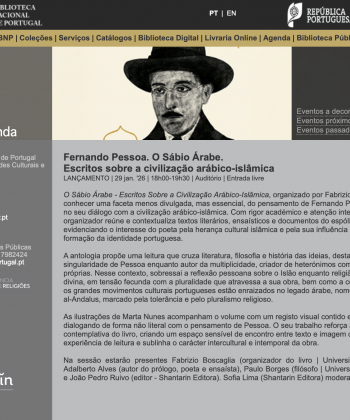News
Memory politics and democratization at international conference in Buenos Aires
António Costa Pinto, professor at Universidade Lusófona and one of the leading scholars of Southern European authoritarian regimes and democratization, participated in the international conference “Dopo le dittature: Transizioni, eredità, memorie” (After the Dictatorships: Transitions, Legacies and Memories), held in Buenos Aires from 18–20 February 2026 and organized within the REFAT academic network coordinated by the University of Bologna.
The conference gathered researchers from Europe and Latin America working on the comparative study of authoritarianism, democratic transitions and political memory. Discussions focused on how societies interpret dictatorial pasts, how public narratives are constructed, and how these narratives continue to influence contemporary democratic politics.
In the panel “Memorie e intellettuali” (Memory and Intellectuals), António Costa Pinto presented the Portuguese case, addressing the legacy of the Estado Novo regime and the long-term impact of the 1974 democratic transition. The panel included comparative contributions on Spain, Argentina and Brazil, allowing a broader reflection on transitional justice, public history and the role of intellectuals in shaping collective memory. Across these cases, discussions highlighted a shared challenge: the democratic management of contentious pasts and the relationship between historical narratives and contemporary political polarization.
The event forms part of a wider international research effort examining how democratic systems confront the legacies of dictatorship and how public memory shapes political competition in the twenty-first century.
Debate: Religions Between War and Peace – Europe at the Crossroads
The inauguration event for the 2025-26 Academic Year of the Master's Programme in Science of Religions at Universidade Lusófona took place on December 9, 2025, at 5:30 pm, with the participation of several LusoGlobe members, notably Paulo Mendes Pinto, Jorge Botelho Moniz, and Fabrizio Boscaglia. Program and details in the image.
Giving Visibility to Commercial Sex Clients in Portugal: A Netnographic Approach
Nélson Ramalho has recently published a research article in collaboration with Bárbara Moreno, a master’s student in Risks and Violence in Contemporary Societies: Analysis and Social Intervention. The study addresses an under-researched social group in Portugal by analysing the experiences of clients of commercial sex.
Strengthening Social Support for Young People in Residential Care
A new article by Paula Ferreira , co-authored with Mara Ricardo, has recently been published in Children and Youth Services Review. The study, developed within the framework of the D’AR-TE Project, analyses how social support mechanisms can positively influence the emotional, relational, and behavioural development of children and young people living in residential care.
Fernando Pessoa's book O Sábio Árabe Launched
Fernando Pessoa's book O Sábio Árabe (The Arab Sage), edited by Fabrizio Boscaglia, containing Pessoa's writings on Arab-Islamic civilisation, will be officially launched on 29 January at 6 pm at the National Library of Portugal, with Paulo Borges, Adalberto Alves, João Pedro Ruivo and Sofia Lima (Shantarin Editora).
Fernando Pessoa's book, O Sábio Árabe
Fernando Pessoa's book, O Sábio Árabe: escritos sobre a civilização arábico-islâmica (Shantarin, 2025), edited by Fabrizio Boscaglia - a member of LusoGlobe and deputy director of the Master's in Religious Studies at ULusófona - is quoted in the text of the Constitutional Court of the Portuguese Republic, which pronounced on the unconstitutionality of aspects of the new Nationality Law.






